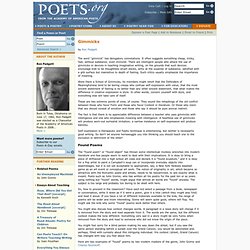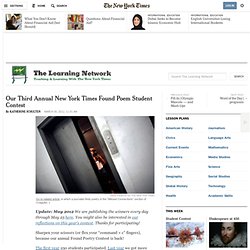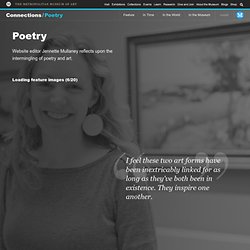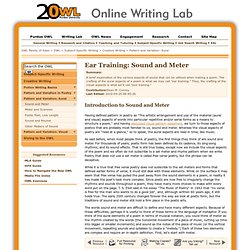

Discover the Meaning of Rap Lyrics.
Gimmicks. The word "gimmick" has derogatory connotations.

It often suggests something cheap, tricky, fast, without substance, even immoral. There are intelligent people who attack the use of gimmicks or devices in teaching imaginative writing, on the grounds that such devices encourage kids to be thoughtless smart alecks, witty at the expense of substance, satisfied with a glib surface but insensitive to depth of feeling. Such critics usually emphasize the importance of meaning. Were there a School of Gimmicks, its members might retort that the Defenders of Meaningfulness tend to be boring creeps who confuse self-expression with value, that the most sincere statement of feeling is no better than any other sincere statement, that what makes the difference in creative expression is style. In other words, concern yourself with style, and everything else will take care of itself. These are two extreme points of view, of course. Found Poems So, how to proceed in the classroom? Challenge Verse Explosions.
VirtuaLit: Elements of Poetry. Fooling with Words with Bill Moyers.
Poems. Poets. Lessons and Exercises. Our Third Annual New York Times Found Poem Student Contest. Yana Paskova for The New York TimesGo to related article, in which a journalist finds poetry in the “Missed Connections” section of Craigslist. » Update: May 2012 We are publishing the winners every day through May 25 here.

You might also be interested in our reflections on this year’s contest. Thanks for participating! Sharpen your scissors (or flex your “command + c” fingers), because our annual Found Poetry Contest is back! The first year 250 students participated. What’s a found poem? A good nutshell description would be “poems that are composed from words and phrases found in another text.” You can mix and combine these words and phrases into a new piece, or you might simply “find” some Times writing that you think is already poetic, as Alan Feuer does with Craigslist and its “Missed Connections” posts. For more detail about found poetry and its history and classroom uses, we suggest the excellent article from English Journal, “Found Poems and Headline Poems.”
What are the rules?
Videos. The Metropolitan Museum of Art. "Poetry" by Jennette Mullaney1280929 Songs of Innocence and of Experience: The Tyger (Plate 42) | 1794 / ca. 1825 | William Blake (British) | Copy Y, ca. 1825 | Relief etchings printed in orange-brown ink, heightened with watercolor and shell gold, with hand-painted decorative borders | Rogers Fund, 1917 (17.10.42)7641024 Songs of Innocence and of Experience: The Tyger (Plate 42) | 1794 / ca. 1825 | William Blake (British) | Copy Y, ca. 1825 | Relief etchings printed in orange-brown ink, heightened with watercolor and shell gold, with hand-painted decorative borders | Rogers Fund, 1917 (17.10.42)1280843 Returning Home | Qing dynasty, ca. 1695 | Shitao (Zhu Ruoji) (Chinese) | Album of twelve paintings; ink and color on paper | Facing pages inscribed by the artist | From the P.

Y. and Kinmay W. Tang Family Collection, Gift of Wen and Constance Fong, in honor of Mr. and Mrs. Jennette Mullaney1280852 My name is Jennette Mullaney. Pattern and Variation: Aural. Summary: A brief exploration of the various aspects of sound that can be utilized when making a poem.

The crafting of the aural aspects of a poem is what we may call "ear training. " Thus, the crafting of the visual aspects is what we'd call "eye training. " Contributors:Sean M. ConreyLast Edited: 2010-04-25 08:45:26 Introduction to Sound and Meter Having defined pattern in poetry as "The artistic arrangement and use of the material (aural and visual) aspects of words into particular repetitive and/or serial forms as a means to structure a poem," and having discussed visual pattern elsewhere, we turn to those aspects of poetics that are probably most familiar to us, sound and meter. As said before, when most people think of poetry, the first things they think of are sound and meter. While it is true that free verse poetry does not subscribe to the set meters and forms that defined earlier forms of verse, it must still deal with these elements.